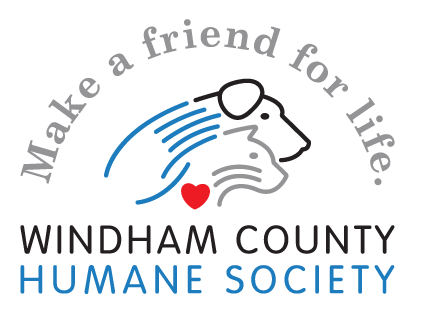Wildlife Concerns
Whether it’s a baby bird in your backyard, or an injured animal on the side of the road, finding a wild animal in need of help is stressful. What can you do to help? Who can you call?
While the staff at the Windham County Humane Society are not licensed wildlife rehabilitators, we do share your love and concern for all animals and are happy to point you in the right direction.
Tips for Helping Wildlife
Do not handle the animal. Call a wildlife rehabilitator first.
If it is absolutely necessary to touch the animal (ex. to get it to a safe location), wear gloves. If rabies is suspected, and the rescuer does not wear gloves, the animal will be euthanized and tested to make sure that the rescuer doesn’t get sick. Wearing gloves keeps both you, and the animal, safer.
Do not feed the animal. Food when an animal is sick or injured can be deadly if the animal’s body is not able to process the food.
Do offer water. Water can be offered in a shallow dish, appropriate to the size of the animal.
Do not take a wild animal into captivity. It is illegal. Only licensed rehabilitators may legally care for wildlife.
Local Wildlife Rehabilitators
You should not touch skunks, raccoons, foxes or bats that appear in need. Although all mammals can carry rabies, these animals are considered rabies vectors* and have a higher likelihood of being positive for rabies even if they don’t appear sick.
Call the Rabies Hotline at 1-800-4-RABIES and do not attempt to touch the animal until after contacting the hotline. Do not allow children, other people or pets to come in contact with the animal.
Donna Perrin (*rabies vector species, e.g., bats, foxes, raccoons, skunks)
802-349-9798
Middlebury, VTRuth Hart (small mammals)
917-496-6890
West Dover, VTFred Homer (birds)
802-348-7889
Newfane, VTPatti Smith (small mammals)
802-490-6580
Bonnyvale Environmental Education CenterRhy Wepaloki (small mammals)
802-380-1820
Putney, VT

